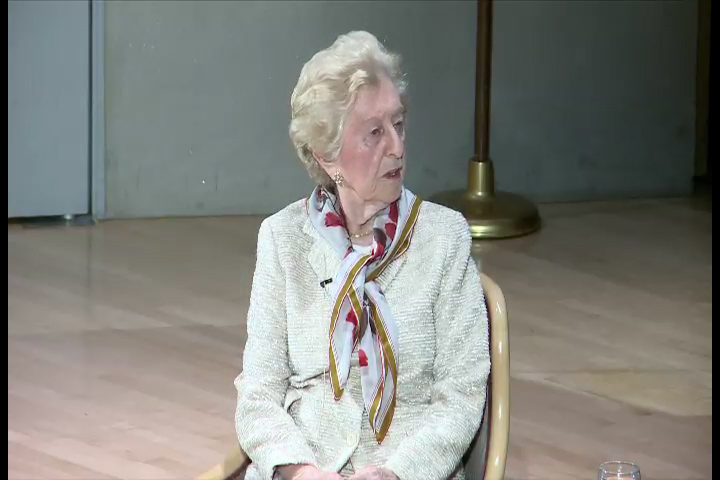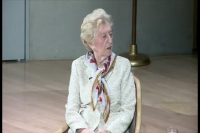Look at the chimneys. That’s where your family is.

Download image
Irene Weiss, neé Fogel, was born on 21st November 1930 in a small town Bótrágy (nowadays Batrad in western Ucraine), which at that time used to belong to the territory of Czechoslovakia. When the Nazi régime took over and divided Czechoslovakia, in 1939 was Botragy annexed to Hungary, which at that time was a close ally of Germany. As the WW2 was going further, the Jewish origin of the Fogel family began to mean every time a bigger trouble – Irene had to quit her education at 7th grade, and her father was sent in 1942 to forced labors, As far as Germany began to lose the war, in March 1944 occupied the territory of its former Hungarian ally. A month later, in April 1944, was the whole Fogel family relocated to a Jewish ghetto in Munkacs, and in the end, in May 1944, to the concentration camp Auschwitz-Birkenau. There, the Fogel family was separated – Irene’s father was killed, probably for not fulfilling with his work duties at the gas chambers, and about the destiny of Irene’s 16-year-old brother was never more known. Thanks to the fact that Irene’s hair had been shaved already in the Munkacs‘ ghetto, she passed the first selection, together with her sister Serena, as she looked older with her head covered with a scarf, and not like another children who went directly to the gas. At the Auschwitz barracks, both sisters accidentaly met with two aunts of theirs, Rose and Pearl. The was front was approaching, and Irene, Serena and their two aunts were forcibly evacuated from Auschwitz in January 1945 to other camps in Germany, through what is known as a death march. Irene’s aunt Pearl caught the typhoid fever at the death march, and after an attempt of ubicating her in an infirmary, Pearl was killed. Until the liberation by the Russian army survived just Irene, Serena and their aunt Rose. After hundreds of kilometers by foot, they finally reached Prague, where they received medical attention. In 1947 emigrated to the United States, where she lived first in New York and later in Virginia. She became an educator, and until today, when already pensioned, she volunteers in the United States Holocaust Memorial Museum. In the years 2015 and 2016, she was a co-plaintiff in the trial of former Auschwitz guards and SS members.
